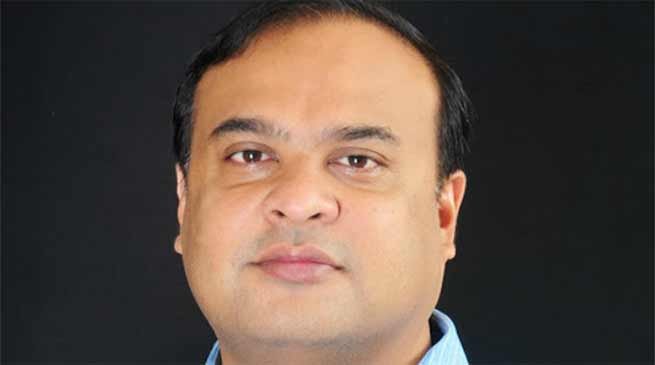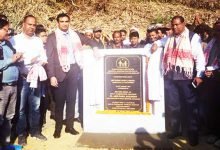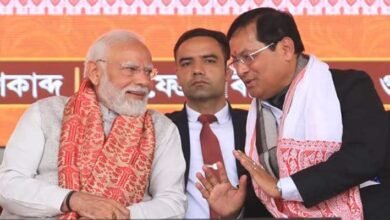
If the Citizenship Bill is not passed, 17 Assamese seats, which elect Assamese people, will go the Jinnah way…Himanta Biswa Sarma.
Guwahati
If the Citizenship (Amendment) Bill, 2016, which is opposed in the state by large sections, is not passed, then Assam will go to the “Jinnahs”, said Assam minister Himanta Biswa Sarma on Sunday .
“People are concerned that we are trying to bring somebody (outsiders), which is false. Without that Bill, we are surrendering ourselves to the philosophy of Jinnah… This is a fight between Jinnah’s legacy and India’s legacy,” Sarma, said at a press conference here.
The Bill essentially proposes to make minority (or non-Muslim) immigrants from three neighbouring countries, Bangladesh, Afghanistan and Pakistan, eligible for Indian citizenship. The Centre is set to bring the Bill before Parliament, and speaking in Silchar on Friday, Prime Minister Narendra Modi called it “atonement” of the mistakes of Partition.
The Bill is seen to be violating the 1985 Assam Accord that, simply put, says that any immigrant who came into the state after the midnight of March 24, 1971, would be identified as a foreigner. Asked about this on Sunday, Sarma said, “Let the Assam Accord be violated, but let us not go to Jinnah. You have to determine between the Assam Accord and Jinnah. Which way will you go?”
When a reporter asked if he meant Muslims by “Jinnah”, he replied that he had said “Jinnah” and not named any community.
Sarma added, “The Bill itself will strengthen us, but rumours are being spread about it. If here, we people will lose Sarbhog seat (an Assembly seat in Lower Assam where Bengali Hindus play a determining factor and that elected BJP state president Ranjit Dass).
We will lose many seats… Detection and deportation (of illegal migrants) will be done, but not at the cost of Jinnah. We cannot have detection and deportation to make Badruddin Ajmal (an MP from the AIUDF, which enjoys a large support among Bengal-origin Muslims in the state) the chief minister of Assam. If something leads us to make Ajmal the chief minister, then we will have to check that policy… If the Citizenship Bill is not passed, 17 Assamese seats, which elect Assamese people, will go the Jinnah way… We are trying to save Assam from Jinnah. We are not apologetic… I am against Jinnah.”
Sarma also added that the purpose of the National Register of Citizens (NRC) was to “detect Jinnahs”.
Sarma’s comment came on the day the Union Home Ministry notified a nine-member committee to work for the implementation of Clause 6 of the Assam Accord.
Clause 6 reads: “Constitutional, legislative and administrative safeguards, as may be appropriate, shall be provided to protect, preserve and promote the cultural, social, linguistic identity and heritage of the Assamese people.”
Regarding the definition of “Assamese people”, Sarma said the state government is willing to accept any cut-off which is 1951 or prior to that. The 1951 NRC as the basis for defining “Assamese people” was also recommended in a report prepared by former Assembly speaker Pranab Gogoi. Sarma referred to it as providing the foundation for future work for defining “Assamese people”.
Among those who have warned the BJP against the Citizenship Amendment Bill is its ally AGP. On January 8, the powerful All Assam Students’ Union and 30 other organisations have called for a state-wide bandh against the legislation.









